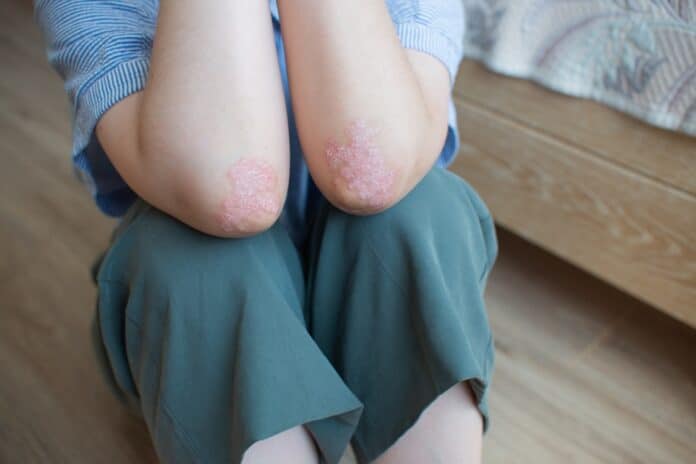
Psoriasis is more than just an average skin condition; it can wreak havoc on your mental well-being and emotions. In fact, the same processes in your body that create plaques can also change the levels of brain chemicals that affect your mood.
In this article, we will look at the connection between Psoriasis and depression and possible treatment methods.
Are Psoriasis and Depression Connected?
People who have psoriasis are twice as likely to be depressed as those who don’t have it. Even if your psoriasis symptoms are mild, you still have an increased risk. According to one study, nearly 20% of people with psoriasis have some form of depression.
There are several reasons for connecting psoriasis and depression, including:
People Around You Might Treat You Differently
Psoriasis is commonly misunderstood, so some people might think it’s contagious. Surveys also reveal that 1 in 5 people with psoriasis have faced rejection because of their condition.
Psoriasis Is Uncomfortable
Psoriasis plaques burn, crack, itch, and bleed. Statistically, 42% of people with psoriasis also have the swollen, painful joints of psoriatic arthritis. Living with these uncomfortable symptoms can increase your chances of suffering depression.
What Are The Signs That You Are Depressed?
Feeling blue occasionally does not mean you are depressed. However, you might be depressed if you:
● Feel worthless, angry, empty, or irritable.
● Sleep more than usual or have trouble sleeping.
● Have no appetite or feel hungrier than normal
● Have difficulty going to work or school
● Have you lost interest in activities you once loved, including sports, sex, and hobbies
Are Psoriasis and Anxiety Linked?
Alongside depression, having psoriasis will increase your chances of having anxiety. Studies have discovered that people with psoriasis are 31% more likely to suffer anxiety than people without psoriasis.
Like depression, anxiety might be caused by how much psoriasis alters your appearance. This anxiety could make you avoid social interactions or feel lonely and isolated.
What Are The Treatment Options For Psoriasis and Depression?
If you notice symptoms of depression or anxiety, don’t hesitate to consult your doctor for ways to feel better. For instance, some drugs doctors prescribe for psoriasis treatment can help with depression symptoms. This includes ixekizumab (Taltz) and guselkumab (Tremfya).
Another solution is using a technique called cognitive behavioral therapy (CBT). With this method, you can change the negative thoughts that make you depressed. You can also try mind-body techniques such as meditation to control negative emotions.
Conclusion
Psoriasis is a condition that affects your physical appearance and could leave you feeling depressed or anxious. However, you can get treatment using psoriasis medications or meditation techniques to help you feel better.


















